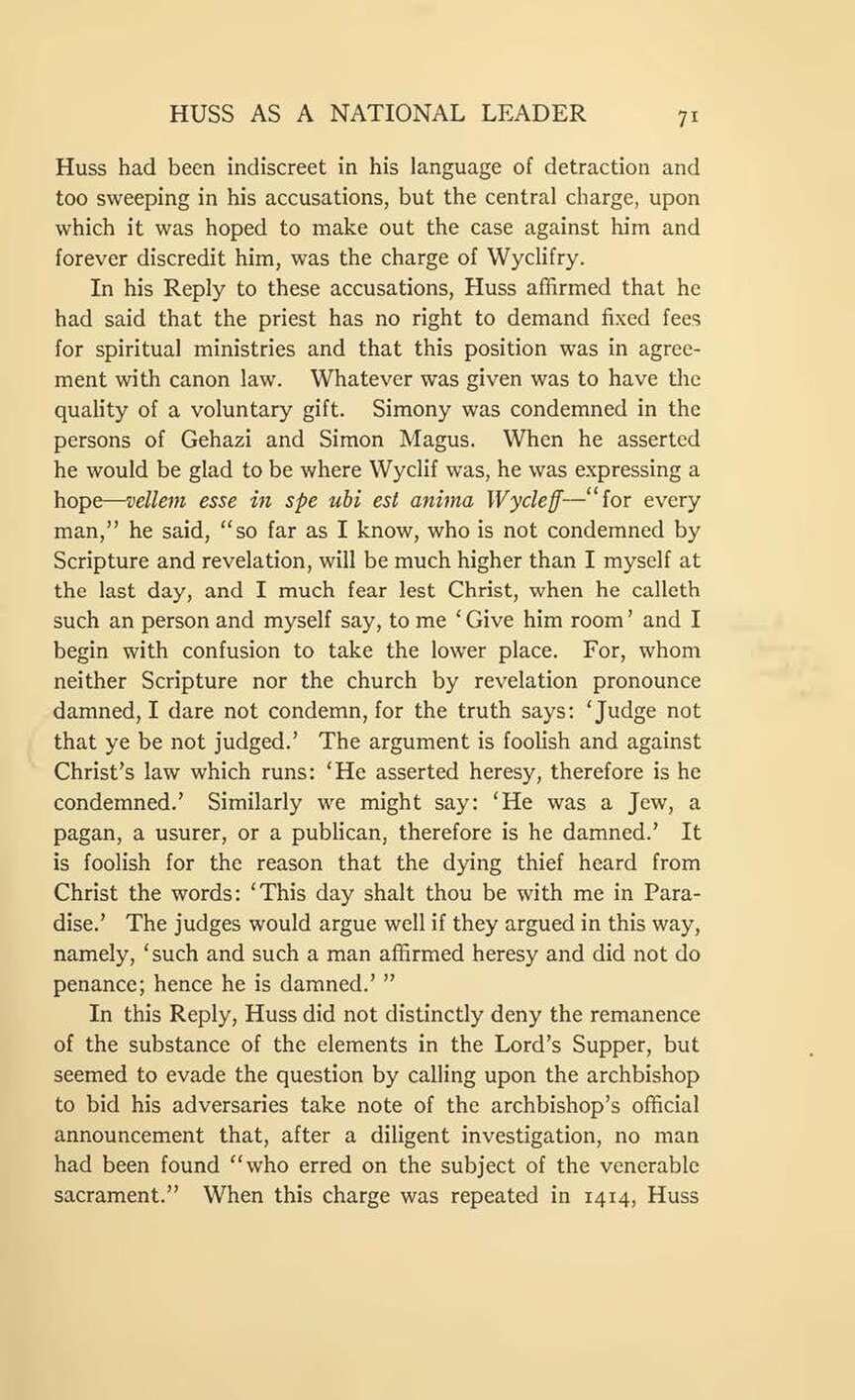Huss had been indiscreet in his language of detraction and too sweeping in his accusations, but the central charge, upon which it was hoped to make out the case against him and forever discredit him, was the charge of Wyclifry.
In his Reply to these accusations, Huss affirmed that he had said that the priest has no right to demand fixed fees for spiritual ministries and that this position was in agreement with canon law. Whatever was given was to have the quality of a voluntary gift. Simony was condemned in the persons of Gehazi and Simon Magus. When he asserted he would be glad to be where Wyclif was, he was expressing a hope—vellem esse in spe ubi est anima Wycleff—‘‘for every man,” he said, ‘‘so far as I know, who is not condemned by Scripture and revelation, will be much higher than I myself at the last day, and I much fear lest Christ, when he calleth such an person and myself say, to me ‘Give him room’ and I begin with confusion to take the lower place. For, whom neither Scripture nor the church by revelation pronounce damned, I dare not condemn, for the truth says: ‘Judge not that ye be not judged.’ The argument is foolish and against Christ’s law which runs: ‘He asserted heresy, therefore is he condemned.’ Similarly we might say: ‘He was a Jew, a pagan, a usurer, or a publican, therefore is he damned.’ It is foolish for the reason that the dying thief heard from Christ the words: ‘This day shalt thou be with me in Paradise.’ The judges would argue well if they argued in this way, namely, ‘such and such a man affirmed heresy and did not do penance; hence he is damned.’”
In this Reply, Huss did not distinctly deny the remanence of the substance of the elements in the Lord’s Supper, but seemed to evade the question by calling upon the archbishop to bid his adversaries take note of the archbishop’s official announcement that, after a diligent investigation, no man had been found “who erred on the subject of the venerable sacrament.” When this charge was repeated in 1414, Huss
